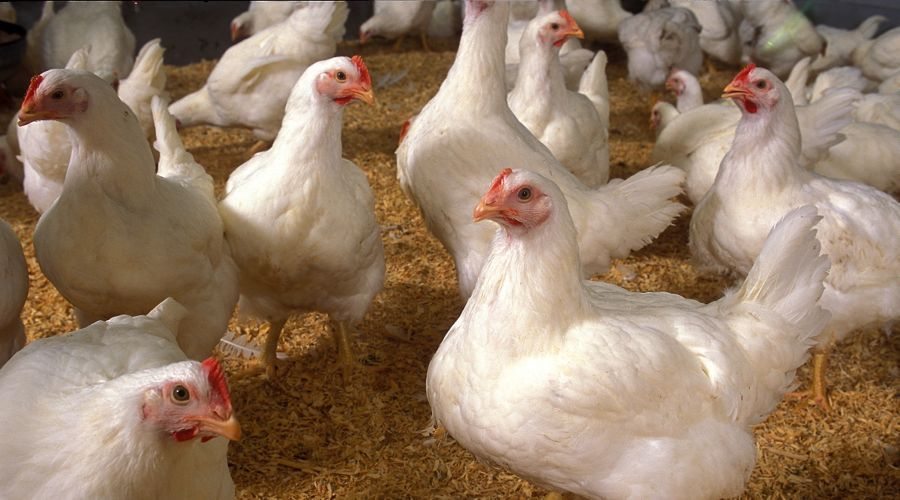Chicken farmers to expand phase-out of antibiotics
Preventive use of Category II, III drugs to end before 2021
By Staff
| 2 min read

(Stephen Ausmus photo courtesy ARS/USDA)
The national body for Canada’s chicken producers has set new targets to phase out preventive use of the antimicrobials deemed next-to-most important in human medicine.
Chicken Farmers of Canada (CFC) on Tuesday announced that, following the “successful elimination” of Category I antibiotics for disease prevention in chickens, its antimicrobial use strategy will next focus on eliminating preventive use of Category II antimicrobials in chicken production by the end of next year.
Where Category I antimicrobials are considered of “very high importance” in human medicine — products essential to treat serious bacterial infections, with limited or no available alternatives if drug-resistant strains develop, Category II is considered of “high importance.”
As per Health Canada’s definition, Category II drugs — such as penicillins, quinolones and first- and second-generation cephalosporins, among others — can be used to treat a variety of infections, serious or otherwise, and alternatives are “generally available.”
CFC’s strategy also now sets a goal to eliminate preventive use of Category III antibiotics, those of “medium importance,” by the end of 2020.
Category III drugs — such as tetracyclines and bacitracins, among others — are used to treat bacterial infections for which alternatives are generally available, and if bacteria develop resistance they can generally be handled by Category I or II drugs.
CFC said its policy will maintain the use of ionophores, along with antibiotics for therapeutic purposes — that is, for the purpose of treating infected birds. Ionophores today are in Health Canada’s Category IV, “low importance” drugs not now used in human medicine.
“This strategy provides a sustainable means of meeting consumer expectations, while maintaining the ability for farmers to protect the health and wellbeing of their birds,” Chicken Farmers chair Benoit Fontaine said in a release.
Consumers, CFC said, “can be assured that Canadian chicken is free of antibiotic residues, and has been for decades.”
Canada has strict regulations with respect to antibiotic use and withdrawal times, monitored by the Canadian Food Inspection Agency, to ensure chicken reaching the marketplace doesn’t contain residues, CFC said.
CFC said its latest decision “builds on the objective of eliminating the preventative use of antibiotics of human importance.” — AGCanada.com Network


